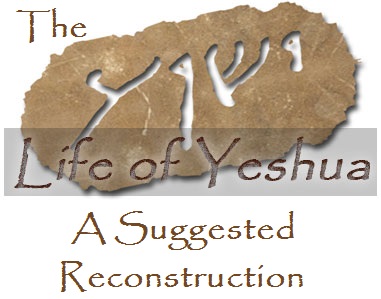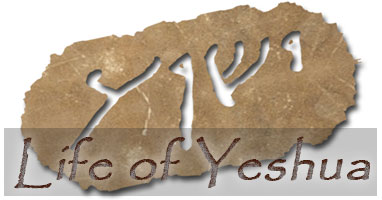Matt. 10:37-38; 16:24; Mark 8:34;
Luke 9:23; 14:25-27, 33
(Huck 62, 171; Aland 103, 217; Crook 118, 260-261)[1]
Revised: 15 January 2025[2]
מִי שֶׁבָּא אֵלַי וְאֵינוֹ שׂוֹנֵא אֶת אָבִיו וְאֶת אִמּוֹ וְאֶת אִשְׁתּוֹ וְאֶת יְלָדָיו וְאֶת אֶחָיו וְאֶת אַחְיוֹתָיו וְאַף אֶת נַפְשׁוֹ אֵינוֹ יָכוֹל לִהְיוֹת תַּלְמִידִי מִי שֶׁאֵינוֹ נוֹשֵׂא אֶת צְלוּבוֹ וּבָא אַחֲרַי אֵינוֹ יָכוֹל לִהְיוֹת תַּלְמִידִי מִי שֶׁאֵינוֹ מַנִּיחַ כָּל מַה שֶּׁיֵשׁ לוֹ אֵינוֹ יָכוֹל לִהְיוֹת תַּלְמִידִי
“Anyone who comes to join my band of followers but puts family ties or love of self ahead of me cannot possibly be my full-time disciple. Anyone who is not prepared to die cannot possibly be my full-time disciple. Anyone who does not renounce his possessions cannot possibly be my full-time disciple.”[3]
| Table of Contents |
|
3. Conjectured Stages of Transmission 5. Comment 8. Conclusion |
 .
.
.
.
.
.
Reconstruction
To view the reconstructed text of Demands of Discipleship click on the link below:
Paid Content
Premium Members and Friends of JP must be logged in to access this content: Login
If you do not have a paid subscription, please consider registering as a Premium Member starting at $10/month (paid monthly) or only $5/month (paid annually): Register
One Time Purchase Rather Than Membership
Rather than purchasing a membership subscription, you may purchase access to this single page for $1.99 USD. To purchase access we strongly encourage users to first register for a free account with JP (Register), which will make the process of accessing your purchase much simpler. Once you have registered you may login and purchase access to this page at this link:
 Click here to return to The Life of Yeshua: A Suggested Reconstruction main page.
_______________________________________________________
Click here to return to The Life of Yeshua: A Suggested Reconstruction main page.
_______________________________________________________
- [1] For abbreviations and bibliographical references, see “Introduction to ‘The Life of Yeshua: A Suggested Reconstruction.’” ↩
- [2] Revised with the assistance of Joshua N. Tilton and Lauren S. Asperschlager. The original version of this LOY segment first appeared in Jerusalem Perspective magazine as David Bivin, “Counting the Cost of Discipleship: Lindsey’s Reconstruction of the Rich Young Ruler Complex,” Jerusalem Perspective no.42-44 (1994):23-35, esp. 29-33. ↩
- [3] This translation is a dynamic rendition of our reconstruction of the conjectured Hebrew source that stands behind the Greek of the Synoptic Gospels. It is not a translation of the Greek text of a canonical source. ↩































































































